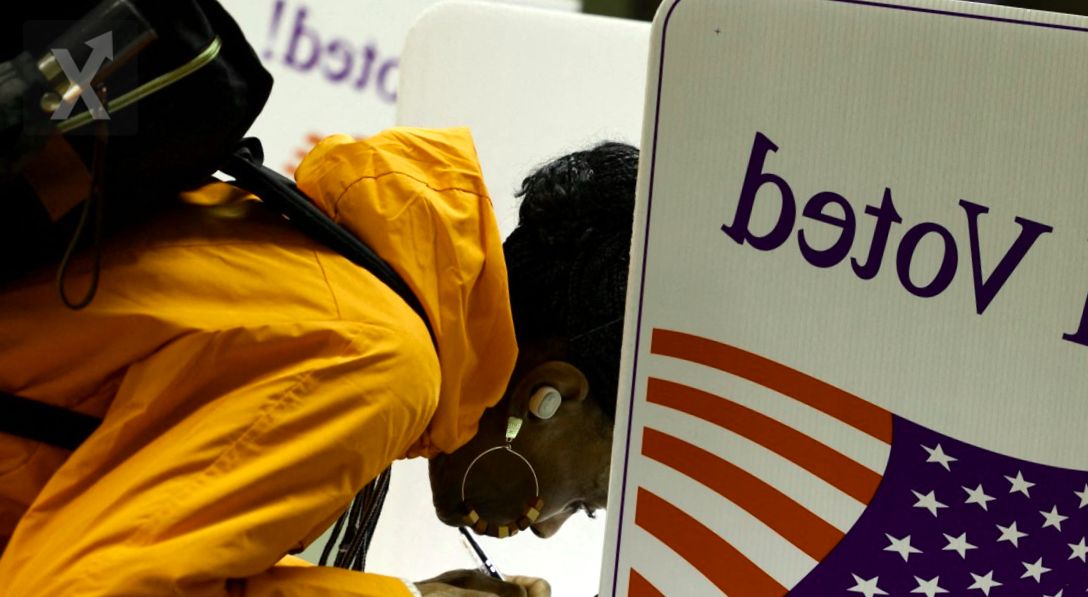The American Vote: Economic Growth and Inflationary Challenges

The U.S. economy is set to end the year performing better than previously expected, as fears of a short-term recession are fading. Evidence of this is that the IMF has revised its growth forecast to 2.8% for this year. However, concerns about inflation persist, which, despite being somewhat under control, still have elements that could trigger it again. In this context, millions of Americans are heading to the polls.
The context of debt and interest rates creates unease
The economy is at the forefront of voters' minds. According to Deloitte, signs indicate that authorities have managed to tame inflation without triggering a recession. Their outlook is relatively optimistic, expecting industrial construction to continue boosting the economy in the coming years. Additionally, a quicker reduction in interest rates by the Federal Reserve (Fed) could allow households to take on more debt, which would support consumer spending. "The trend in the U.S. economy remains favorable. Consumer spending is expected to grow by 2.4% in 2024," notes the consulting firm. However, there are risks related to geopolitical conflicts and trade policies that could lead to persistent inflation. Regarding employment, it is anticipated that job growth will continue to decline due to demographic changes affecting labor force participation.
The Committee for a Responsible Federal Budget, a nonpartisan group in the U.S., warns that the next president will face numerous fiscal challenges, many of which already existed but are now more urgent. The first challenge is record levels of debt, projected to reach 107% of GDP by 2029, and could rise to 115% or more by 2033 if irresponsible fiscal decisions continue. The second challenge is the rising costs of interest, which are projected to be the fastest-growing expenditure in the presidential budget. By 2027, these costs are expected to exceed total defense spending and reach a record 3.2% of GDP by 2030.
According to Gallup, the economy is the most critical issue for American voters when choosing a president. In their survey, 52% consider the economy to be "extremely important," and 30% rate it as "very important," indicating that it is a decisive factor for nearly nine out of ten. Voters believe Donald Trump has a better ability than Kamala Harris to manage the economy, with 54% favoring Trump compared to 45% for Harris. In terms of the IMF's projection for this year, the average U.S. GDP growth is expected to be 3.5%, surpassing the 1.4% that Donald Trump reported at the end of his administration, which he left in negative territory due to the pandemic. As for inflation, Joe Biden has not performed well, reporting an 8% inflation rate in 2022. Job creation has seen a significant slowdown during Biden's administration, although it has still outperformed Trump, who lost 9.2 million jobs in 2020 due to the health crisis. Finally, in the trade balance, imports exceed exports, increasing the deficit under Biden, while the Fed's interest rates have risen sharply, reaching their highest level in two decades in 2023.
In summary, the U.S. economy shows mixed signals: notable growth and robust consumption face significant challenges such as inflation and rising debt. For voters, maintaining this balance is crucial to their electoral decisions, reflecting that economic stability is a fundamental pillar in current politics. All these elements underscore the importance of responsible fiscal policies and proper debt management to avoid future economic setbacks.






